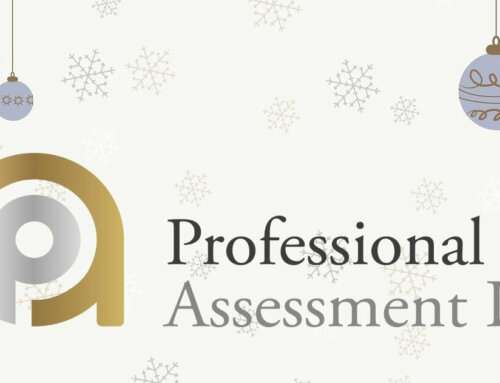GUIDANCE FOR APPRENTICES
As an Apprentice, how does being ‘furloughed’ affect your programme?
This document provides guidance for apprentices that have been furloughed Information correct at the time of issue 14/04/2020.
What does furlough mean?

Can I continue on my apprenticeship programme if I have been furloughed?
In short, yes. The latest government guidance confirms this.
A furloughed employee can take part in volunteer work or training or end-point assessment, as long as it does not provide services to, or generate revenue for, or on behalf of the organisation. The same rule applies to apprentices!
If the rate you are paid while furloughed does not meet the National Living Wage (NLW) or National Minimum Wage (NMW) for hours spent training, your employer will need to ‘top-up’ your pay to make sure you are paid at least the amount earned for training and assessment.
You can read more about this here: https://www.gov.uk/guidance/claim-for-wage-costs-through-the-coronavirus-job-retention-scheme
Wage Rates
Current rates for an apprentice
These are the current rates for the National Living Wage and the National Minimum Wage. The rates change every April. The table shows the rates that apply to different circumstances:
| 25 and over | 21 to 24 | 18 to 20 | Under 18 | Apprentice | |
| Current Rate (from April 2020) | £8.72 | £8.20 | £6.45 | £4.55 | £4.15 |
Apprentices are entitled to the apprentice rate if they’re either:
- aged under 19
- aged 19 or over and in the first year of their apprenticeship
Example: An apprentice aged 22 in the first year of their apprenticeship is entitled to a minimum hourly rate of £4.15.
Apprentices are entitled to the minimum wage for their age if they both:
- are aged 19 or over
- have completed the first year of their apprenticeship
Example: An apprentice aged 22 who has completed the first year of their apprenticeship is entitled to a minimum hourly rate of £8.20.
Extract: https://www.gov.uk/national-minimum-wage-rates
How does that work? Some examples:
Example without employer top-up
An 18-year-old apprentice who is contracted to work 37 hours per week is put on furlough. They continue to train one day (7.5 hours) per week.
The National Minimum Wage for this apprentice is £4.15 per hour, which they must get for every hour they spend doing off-the-job training.
Working out
£4.15 (hourly pay) x 7.5 (hours) = £31.13
£31.13 x 3 (weeks) = £93.38
Over 3 weeks, the apprentice must get at least £93.38.
The employer receives £368 from the Coronavirus Job Retention Scheme (this is 80% of the apprentice’s current wages over a 3-week furlough period). This is above the National Minimum Wage for the hours they spent doing off-the-job training, so the employer does not need to pay any extra.
Example with employer top-up
A 22-year-old on the second year of their apprenticeship is put on furlough. They’re contracted to work 37 hours per week, but the employer has agreed with the apprentice and their training provider that they’ll train for 4 days per week (7.5 hours per day).
The National Minimum Wage for this apprentice is £8.20, which they must get for every hour they spend on off-the-job training.
Working out
£8.20 (hourly pay) x 7.5 (hours) = £61.50
£61.50 x 4 (days) x 3 (weeks) = £738
Over 3 weeks, this means the apprentice must get at least £738.
The employer receives £728.16 from the Coronavirus Job Retention Scheme (this is 80% of the apprentice’s current wages over a 3 week furlough period) This is less than the National Minimum Wage for the time the apprentice spent on off-the-job training, so the employer must pay the remaining £9.84.

If the wage when on the Employee Retention Scheme (Furlough) does not meet the NLW/NMW can I continue my apprenticeship?
We believe that, in most cases, your earnings whilst being furloughed will still meet the applicable National Living Wage/ National Minimum Wage. However, if this is not the case, please speak to your training provider so they can consider all possible options to support you to make progress towards your apprenticeship.
But I have been put in Furlough and don’t have to work!
This is true, but as the guidance states, you are still permitted to continue with your training and end-point assessment. Now is the perfect opportunity to focus all of your attention on the learning for your apprenticeship with no distractions. You can use this time to expand on what you have been taught already, go back and revise on areas you are not certain of and learn new skills that will support your personal development. You can also complete all or some of your end-point assessment while the learning is still fresh in your mind.
Why should I continue my learning and assessment during this period?
Apprentices make a joint commitment with their employer to complete an apprenticeship and employers invest significantly in terms of funding contributions, time and training. The circumstances we find ourselves in today are completely unexpected. Your employer will be doing everything possible to keep the business going and part of this will be to maintain your employment with them, even if this is through the furlough scheme (Government Job Retention Fund). They are going to need your support in the future to rebuild the business, so continuing your apprenticeship now prepares you and the business for the future. It also means you can stay on track with your career/job plans and not let this situation put a halt to these.
Can an End-point Assessment Organisation, such as PAL, offer me any assistance, support and guidance for remote assessments?
PAL provides a range of resources and support materials, all geared to preparing you for EPA. PAL personnel can be contacted at our epasupportservices@professionalassessment.co.uk, or via our free-phone number 0800 160 1899, where our team are on hand to answer your questions.
We believe that it is beneficial to move ahead with end-point assessment while the learning is still fresh in your mind, so we have introduced some flexibilities to the end-point assessment process. This means that, for many standards, the entire end-point assessment can be completed remotely.
Tests, portfolios, presentations, interviews, discussions and portfolios and logs can all be completed while you are at home or work using Zoom technology. If you can use a laptop, smartphone or tablet, you will find our system very easy to use. If you’re unsure about using technology, we will provide help and support to make sure you’re comfortable with it so you can concentrate on achieving the best grade possible.
If your end-point assessment includes a workplace observation or skills challenge, most of the EPA can still be completed. This means less time will be required to complete the remaining parts of the assessment once you return to work.
What is a break in learning?

A break in learning only applies to apprentices that can’t continue their programme for a period of more than four weeks. This may be the best course of action if gateway and/or all aspects of your end-point-assessment are delayed due to current Coronavirus measures, and the break can be applied at any time during EPA.
Speak to your employer and training provider if you think a break in learning may be appropriate for your circumstances, having explored all other options.
What are the other benefits of continuing my apprenticeship while I’m furloughed?
During this time of self-isolation and restrictive working practices, you may feel isolated from your colleagues and workplace. Having the opportunity to stay in contact with others who care about your development, well-being and progression during this period can provide a sense of community and help you maintain your focus on achieving your apprenticeship. Many training providers are offering a range of interactive online learning experiences on a one to one basis or in groups.
If you are close to the end of your programme, your training provider can issue a range of EPA-focussed activities that will support your learning and progression and prepare you for assessment. These may include project and presentation research, fine-tuning portfolio evidence, preparing notes for competency-based interviews or professional discussions and practising for skills challenges (even at home). Mock assessments are also a great way to prepare yourself for EPA.

Extensions have been applied to the assessment windows to ensure apprentices have sufficient time to complete assessments. Assessment windows can be extended by an additional 12 weeks.
If necessary, a break in learning can be applied during the end-point assessment window. Any outstanding assessments can be undertaken at a later date.
For further information, please contact info@professionalassessment.co.uk
https://professionalassessment.co.uk/








